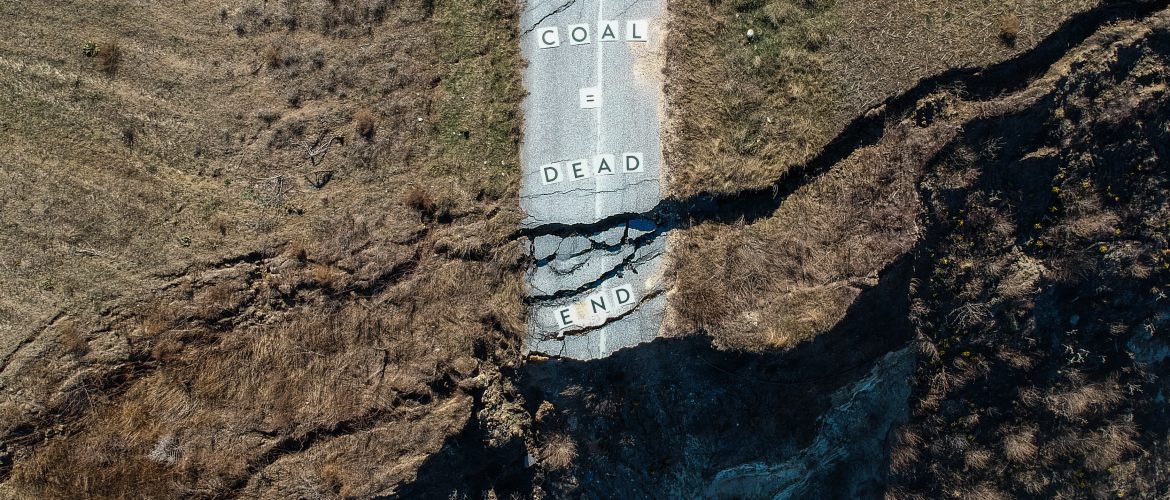The effort of environmental groups in Greece and Europe to relieve PPC and Greek citizens from the deadlocks associated with the sale of PPC’s lignite is reaching its peak. The groups believe that the sale leads to distortions that will prolong the life of the lignite-based power generation model, thus burdening the climate, the environment, public health and the price of electricity consumers pay.
Meanwhile, Greece did not hesitate to set as a condition for its positive vote on the new European Electricity Market Regulation, the granting of an exemption to PPC’s lignite power plant “Ptolemaida V“, which currently is under construction. If such an exemption is granted, hundreds of millions of euros paid by Greek electricity consumers in the coming years would be granted to improve the devastating economics of the new lignite unit.
In a letter to EU Commissioners for Energy and Climate Action, Mr Cañete and for Competition Ms Vestager, the European networks of environmental organizations “Europe Beyond Coal” and “Climate Action Network (CAN) Europe“, the organization of environmental lawyers, Client Earth, the British climate think tank, Sandbag and the Greek environmental think tank, The Green Tank, are making concrete demands for the sale of PPC’s lignite and the related distortions.
The highly interesting answers the two Commissioners gave to the initial letters of the environmental groups have opened up a number of issues that require clearer positions. Specifically:
Meliti II and existing lignite plants
In response to the initial letter of the environmental groups, the Commissioner of Competition, Ms. Vestager replied that none of the investors has shown interest for the construction of a second lignite unit in Meliti, whereas in his answer to the environmentalists, the Commissioner of Energy and Climate Action Mr. Cañete explained that the lignite sale is not intended to promote the construction of Meliti II, or prolong the operation of existing plants beyond the expiration of their licenses.
The groups are now calling for the positions of the two Commissioners to gain institutional status. In particular, they call for the production license for Meliti II to be removed from the sales package and to clarify in this or any future Sales Purchase Agreement that the two units of Megalopolis and Meliti I will be withdrawn from the system in 2027 and 2028, respectively, i.e. when their environmental permits expire.
Capacity Mechanism and Ptolemaida V
The environmental groups also make particular mention of the Greek Government’s proposal for a permanent Capacity Mechanism, which was put in public consultation in Greece recently.
Since the purpose of a Capacity Mechanism is not the economic bail-out of lignite units, the groups are asking the Commissioners not to give any exception to Greece but to abide by the new rules that prohibit any payment via a capacity mechanism to new lignite units.
In view of the fact that the absolutely necessary reforms of the electricity market included in the Target Model have not been implemented yet, there is no certainty that it is, in fact, necessary to establish a permanent, market-wide Capacity Mechanism in Greece. For this reason, the environmental groups are asking the Commission to open a phase two consultation process on the Capacity Mechanism, as provided in EU legislation, which will allow the participation of all electricity market stakeholders.
Just Transition and the National Energy and Climate Plan
Responding to Commissioner Cañete, the five environmental groups argue that the participation of Western Macedonia in the Coal Platform, a European Commission initiative to support Europe’s lignite regions to transform their economies, is not sufficient for the transition to the post-lignite era, especially given that the NECP submitted by Greece ensures that 70% of the current lignite capacity will remain online in 2030. Hence, they ask the European Commission to ensure that the Greek NECP is made compatible with both the Paris Agreement and the EU’s long-term objectives for tackling climate change, promoting clean energy, and improving air quality.
- Read the reply of Commissioners Vestager and Cañete here.
- Read the most recent letter of the environmental organizations to the EU Commissioners here.
- Read the reply of EU Energy and Climate Action Commissioner, Mr. Cañete to the environmental organizations’ initial letter here.
- Read the reply of EU Competition Commissioner, Ms. Vestager to the environmental organizations’ initial letter here.
- Read the initial letter of the environmental organizations to EU Commissioner Cañete and Šefčovič here.
- Read the initial letter of the environmental organizations to EU Commissioner Vestager here.
- Read coverage of the issue by Machie Tratsa in TO VIMA (in Greek) here.



















































































































































































































































































































